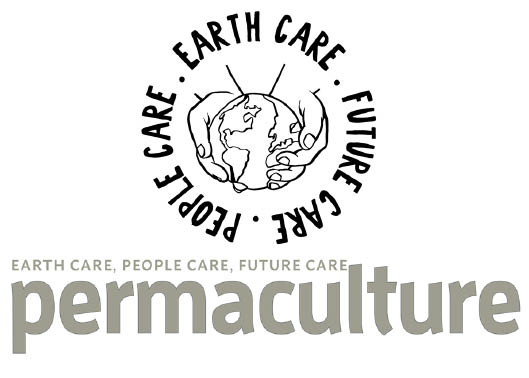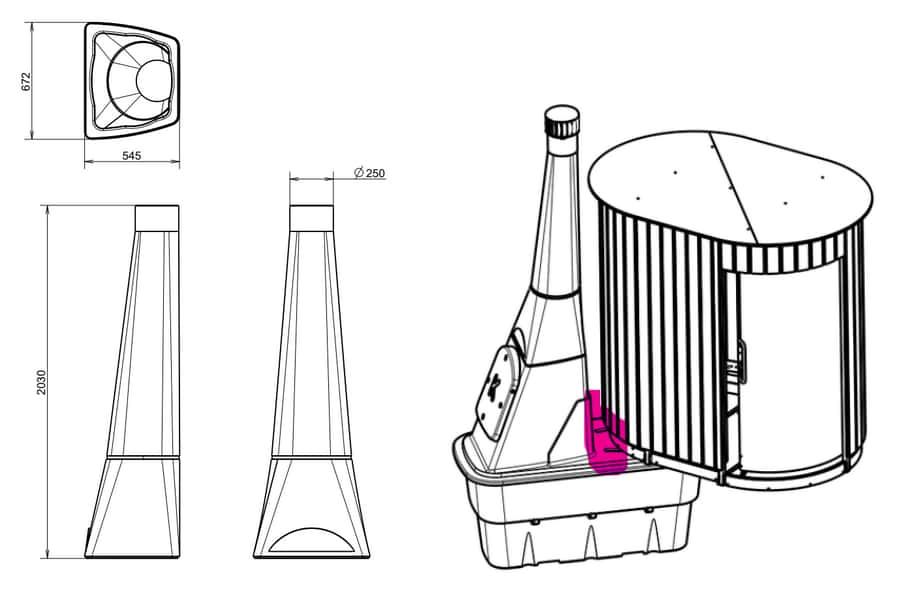
Kazuba news – January 2025
Kazuba have announced a series of upgrades and new options for their highly successful range of semi-public off-grid, waterless toilets, that are serving thousands of
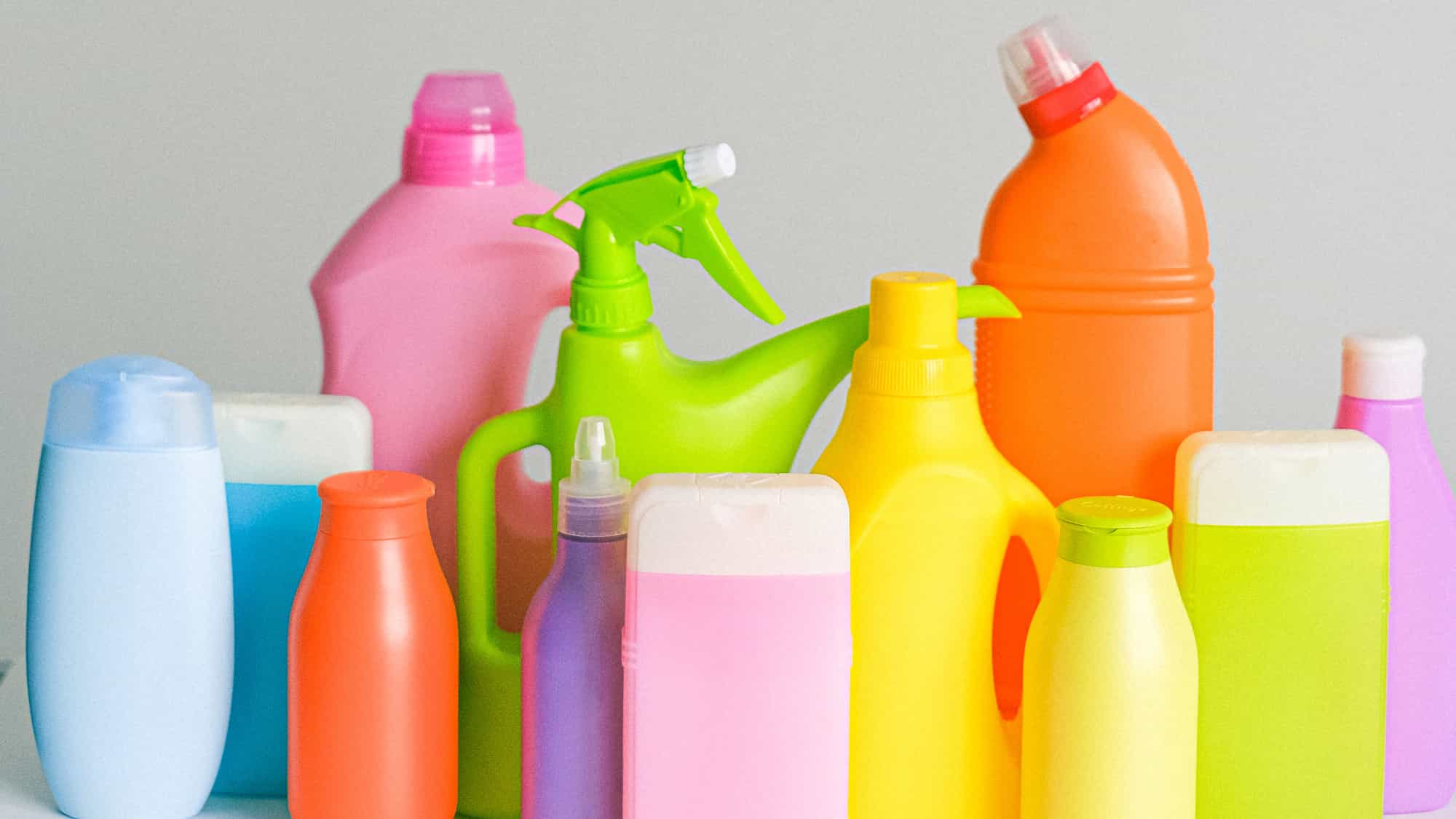
In urine-diverting toilets where the liquid goes ‘away’ (for example to a soakaway pit), urine typically isn’t in the pipes for long enough for it to be a big issue. That said, the use of biological ‘tablets’ in the urine separator (such as Separett’s Bio Drain), the occasional rinse with water, and the use of an enzyme-based cleaning product will help eliminate any risk.
But in products where the urine is stored, like the Separett Tiny with Urine Container, and the Air Head, excessive urine scale build-up can lead to strong odours (noticeable when you remove the container), and on the Separett Tiny, could potentially impair the function of the float switch that tells you when it’s full.
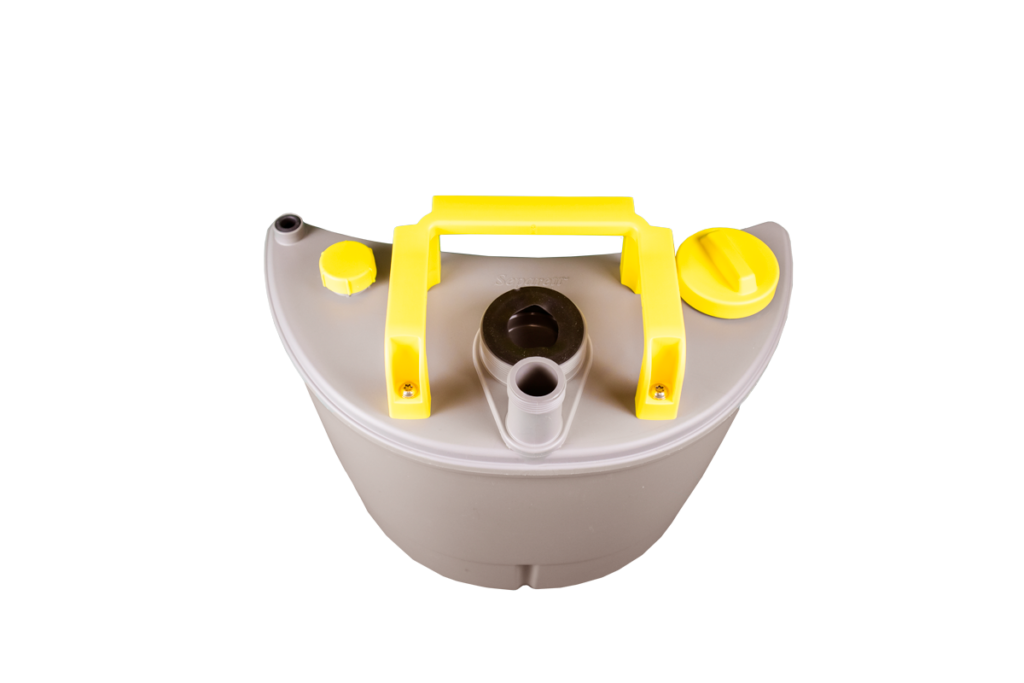
When calcium and protein deposits in urine come together, they react with each other to form a solid compound which we call ‘urine scale’ or calcification. This has a high pH value (ie it is alkaline) forming in pipes and containers where it can be as hard as mineral stone.
The high pH value is caused by bacteria that break down the urea in urine.
Like many things in life, prevention is better than cure. However, most people tend to only think about urine scaling when it becomes a problem, at which point, it’s more difficult to address!
Here’s our tips on prevention:
The longer the urine scale is left in the container, the more difficult it is to remove, as it will form layers that become increasingly strong over time.
You will therefore need acidic or biological cleaning products which may need to be left to work for a while to work effectively.
There are some natural products you can use, but they may lack effectiveness if you are tackling the problem due to urine scale building up over a long time, whereas a natural product used regularly as a preventative will be more effective.
You can purchase commercial urine scale removers from some shops and online. Always follow the instructions for use and disposal as these products may be harmful to people, animals, and the wider environment.
Commercial cleaners can be acid-based or enzyme-based. Enzyme cleaners (sometimes referred to as biological or bio-cleaners) work by binding onto and breaking down uric acid crystals, and in addition, kill the bacteria that causes the ‘urinal’ type odours.
Some of our customers have also used Ecover Toilet cleaner.
Some everyday household products can be very effective urine scale removers and are typically less harmful to the user and to the environment when disposed of.
Vinegar Pour half a bottle (around 250ml) of white vinegar into the urine container, top it up with water, shake the container and leave it to work overnight. The next morning, vigorously shake the container, empty and rinse it. Vinegar acid is more environmentally friendly than other cleaning agents, but should still be used and disposed of with caution.
Citric acid – Citric acid is a good and more gentle alternative to vinegar acid. It is kind on surfaces and very effective against minor urine scaling. Citric acid is sometimes not strong enough to tackle stubborn scaling.
Dishwasher tabs If you have a dishwasher, you can put a dishwasher tab in the urine container, fill it with warm to hot water and leave it to work for a few hours. Be aware that conventional dishwasher products contain phosphates which can be harmful to the environment. Eco-friendly dishwasher tabs use salts, protein compounds and plant surfactants, but may take longer to work.
Denture cleaners Place a denture cleaning tablet in the urine container, fill with water and leave to work overnight. Please be aware that denture cleaners usually also contain harsh ingredients and chemicals which can irritate skin and eyes, so use them with caution and be careful about where you dispose of the liquid.
We hope you find this useful – please note that any cleaning products you use are done so at your own risk – we’re not recommending or condoning any specific products or methods, just sharing some useful information.
Do you have any good tips to share?

Kazuba have announced a series of upgrades and new options for their highly successful range of semi-public off-grid, waterless toilets, that are serving thousands of
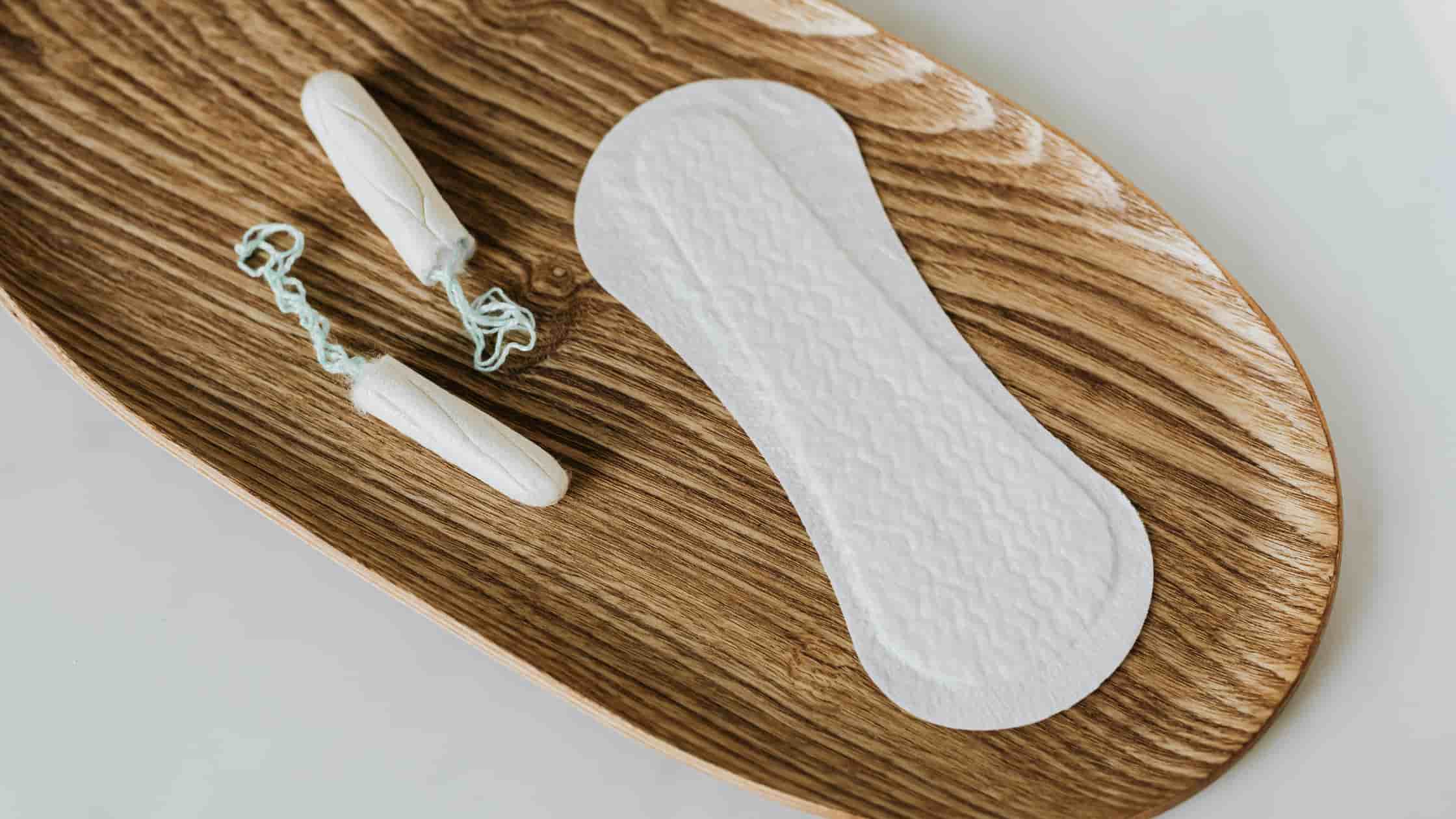
When it comes to compost, composting and waterless toilets, there are some questions that very few people feel comfortable asking, but everyone wants to know
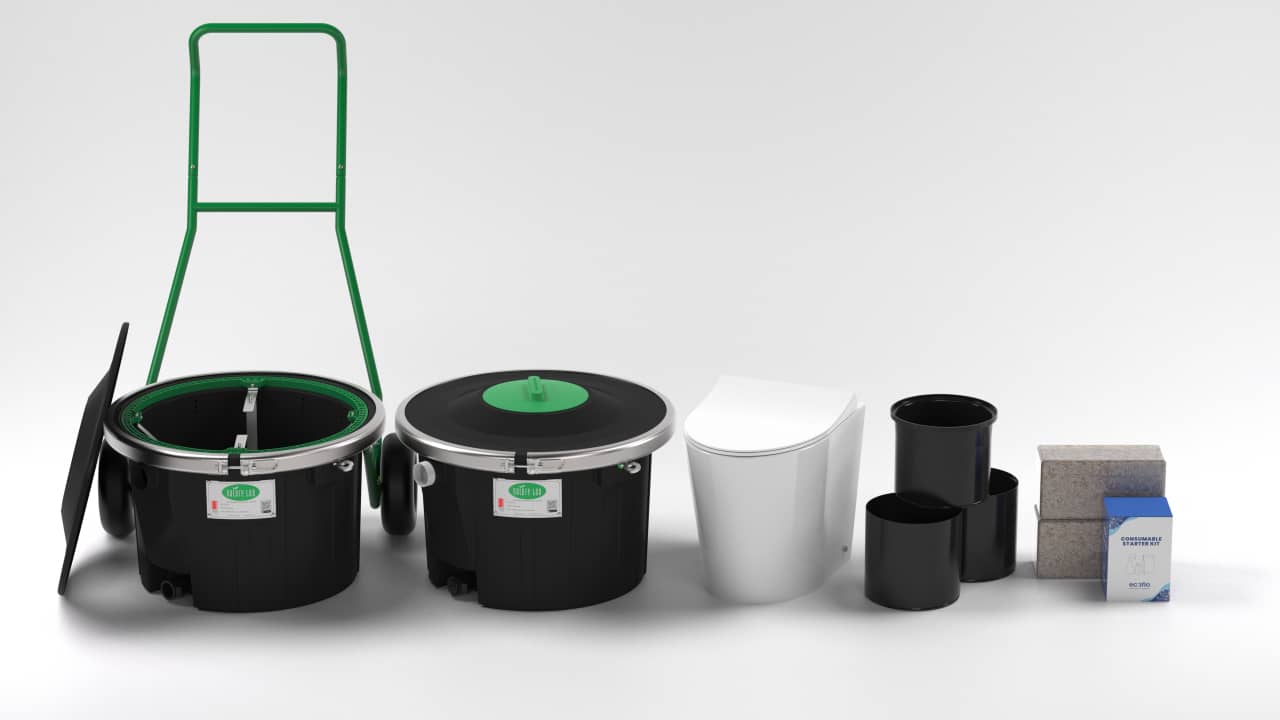
If you keep an eye on our website, you might have noticed a new product slip in recently – the Alectura Premium by Nature Loo.
Not sure which toilet is right for you, need a quote or want to know a little more information?
Help us advise you by telling us a little about your situation - or even better, give us a call to discuss options!
Alternatively, you can write us an email at:
or give us a call on:
Sign up to our newsletter to receive WooWoo news and offers
Like us on Facebook
Suppliers










